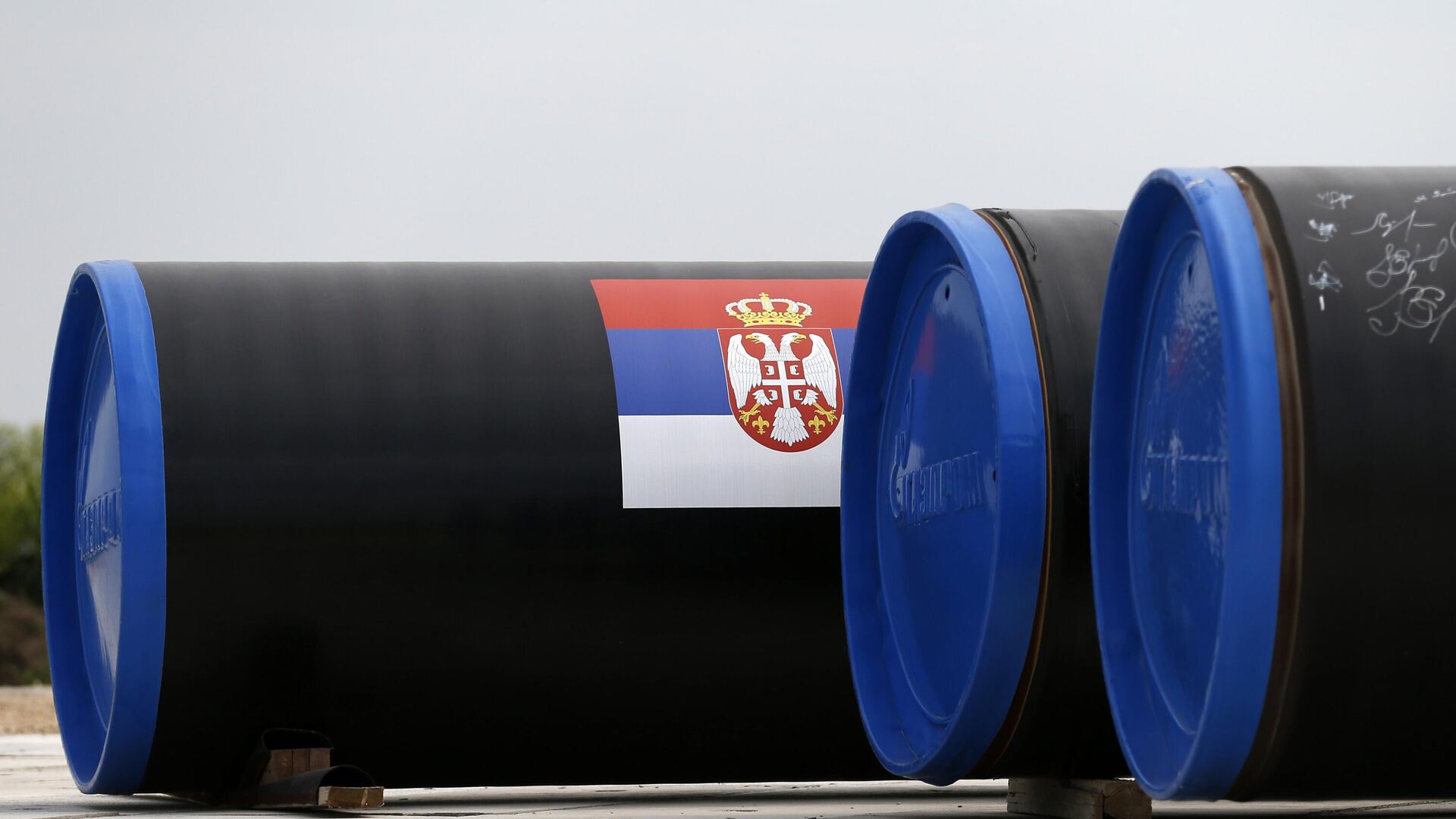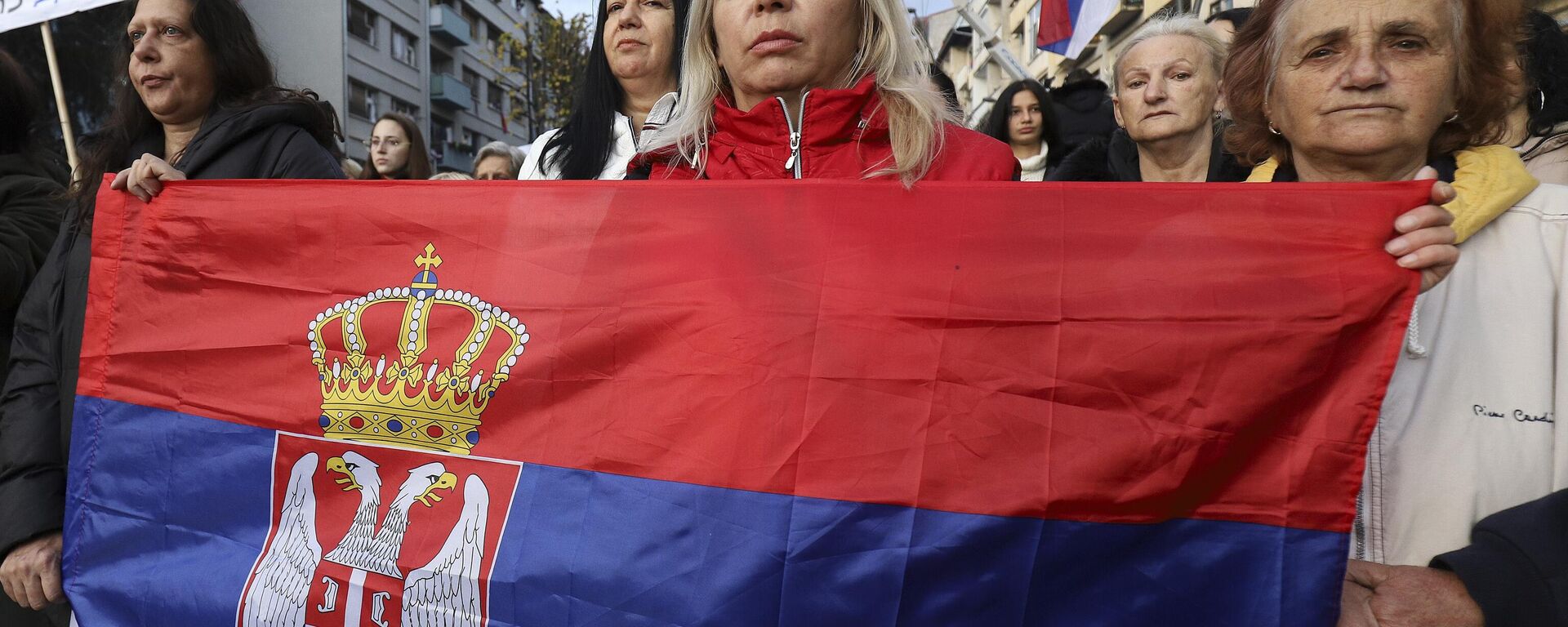https://en.sputniknews.africa/20231216/russias-special-military-operation-launched-de-dollarization-ceo-of-serbias-gas-company-says-1064145299.html
Russia's Special Military Operation Launched De-Dollarization, CEO of Serbia's Gas Company Says
Russia's Special Military Operation Launched De-Dollarization, CEO of Serbia's Gas Company Says
Sputnik Africa
BELGRADE (Sputnik) - On Thursday, the Russian president held the "Results of the Year with Vladimir Putin" press conference, where he emphasized that there are... 16.12.2023, Sputnik Africa
2023-12-16T10:32+0100
2023-12-16T10:32+0100
2023-12-16T10:34+0100
russia
serbia
europe
north atlantic treaty organization (nato)
gas
de-dollarization
https://cdn1.img.sputniknews.africa/img/07e7/0c/10/1064145514_0:0:3000:1688_1920x0_80_0_0_6ca88a012b2a569983256e8e59994ce6.jpg
Russia's special military operation in Ukraine launched the process of de-dollarization and de-Americanization, Dusan Bajatovic, general director of the Srbijagas natural gas provider and deputy chairman of the Socialist Party of Serbia, said in an interview with Sputnik.The CEO also underlined that Russian gas supplies to Serbia will increase to 2.4-2.6 billion cubic meters per year in accordance with an agreement until June 2025.This will happen despite the attempt of Bulgarian authorities to introduce an excise tax on the transit of gas from Russia to stop its gas supplies to Europe, which is, according to Bajatovic, is impossible.He added that the Bulgarian authorities themselves had already withdrawn their proposal, and it was currently being considered by the Bulgarian Constitutional Court.Western nations have implemented extensive sanctions against Moscow when Russia began a special military operation in Ukraine in 2022. These measures include restricting oil prices, seizing and confiscating the property of Russian residents, and embargoing hundreds of items.However, Serbia and other nations declared they would not bow to pressure from their American and European partners and abide by the sanctions, citing the defense of national interests and the wish to keep cordial ties with Moscow.
https://en.sputniknews.africa/20231215/west-wants-serbia-to-sanction-russia-give-up-on-kosovo-serbian-president-says-1064127419.html
russia
serbia
europe
Sputnik Africa
feedback@sputniknews.com
+74956456601
MIA „Rossiya Segodnya“
2023
Sputnik Africa
feedback@sputniknews.com
+74956456601
MIA „Rossiya Segodnya“
News
en_EN
Sputnik Africa
feedback@sputniknews.com
+74956456601
MIA „Rossiya Segodnya“
Sputnik Africa
feedback@sputniknews.com
+74956456601
MIA „Rossiya Segodnya“
russia, serbia, europe, north atlantic treaty organization (nato), gas, de-dollarization
russia, serbia, europe, north atlantic treaty organization (nato), gas, de-dollarization
Russia's Special Military Operation Launched De-Dollarization, CEO of Serbia's Gas Company Says
10:32 16.12.2023 (Updated: 10:34 16.12.2023) BELGRADE (Sputnik) - On Thursday, the Russian president held the "Results of the Year with Vladimir Putin" press conference, where he emphasized that there are serious socioeconomic issues associated with pegged national currency to US dollars.
Russia's special military operation in Ukraine launched the process of
de-dollarization and de-Americanization, Dusan Bajatovic, general director of the Srbijagas natural gas provider and deputy chairman of the Socialist Party of Serbia, said in an interview with Sputnik.
"Russia’s role is enormous: de-dollarization and de-Americanization, decolonization began when the imposed conflict in Ukraine started. It looked like a regional conflict, but in essence it is a struggle between Russia and the collective West, Russia and NATO, and if you really look at it - the East and the West, a clash of the majority of states and nations of the world with the colonial West," Bajatovic said.
The CEO also underlined that
Russian gas supplies to Serbia will increase to 2.4-2.6 billion cubic meters per year in accordance with an agreement until June 2025.
"We previously agreed with Gazprom to increase supplies from 2 billion cubic meters per year and received, in addition to six million cubic meters per day in winter, an additional two, then another three million cubic meters, for a total of 11 million cubic meters per day. Such terms are under the agreement until June 2025, while the price is calculated based on the oil formula, which makes this gas the cheapest in Europe, currently about $300 per 1,000 cubic meters. In reality, annually, the volume of supplies from Russia will reach 2.4-2.6 billion cubic meters," he said.
This will happen despite the attempt of Bulgarian authorities to introduce an excise
tax on the transit of gas from Russia to stop its gas supplies to Europe, which is, according to Bajatovic, is impossible.
"The purpose of the attempt to introduce these additional $100 was that the Russians would refuse to pay, for the rest it would become expensive and, then, they would say - the transit is not paid for, the service cannot be provided. This was invented to stop the supply of Russian gas through the Turkish Stream and the Balkan Stream to Serbia, Hungary, Austria, and Slovakia. Another mining of the Turkish Stream gas pipeline, as was the case with Nord Stream, would be too suspicious. It would not be possible to justify the fact that another gas pipeline was mined at the bottom of the sea, so this option was invented to stop gas supplies from Russia to Europe," Bajatovic said.
He added that the Bulgarian authorities themselves had already withdrawn their proposal, and it was currently being considered by the Bulgarian Constitutional Court.
Western nations have implemented extensive sanctions against Moscow when Russia began a special military operation in Ukraine in 2022. These measures include restricting oil
prices, seizing and confiscating the property of Russian residents, and embargoing hundreds of items.
However, Serbia and other nations declared they would not bow to pressure from their American and European partners and abide by the sanctions, citing the defense of national interests and the wish to keep cordial ties with Moscow.


